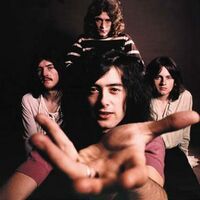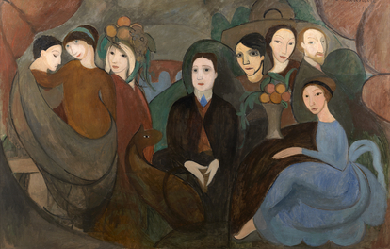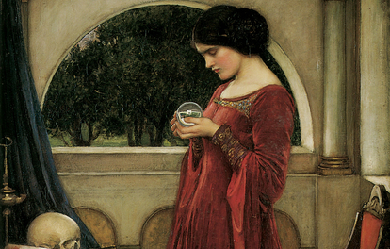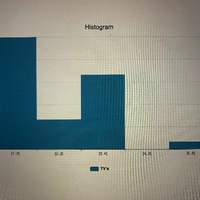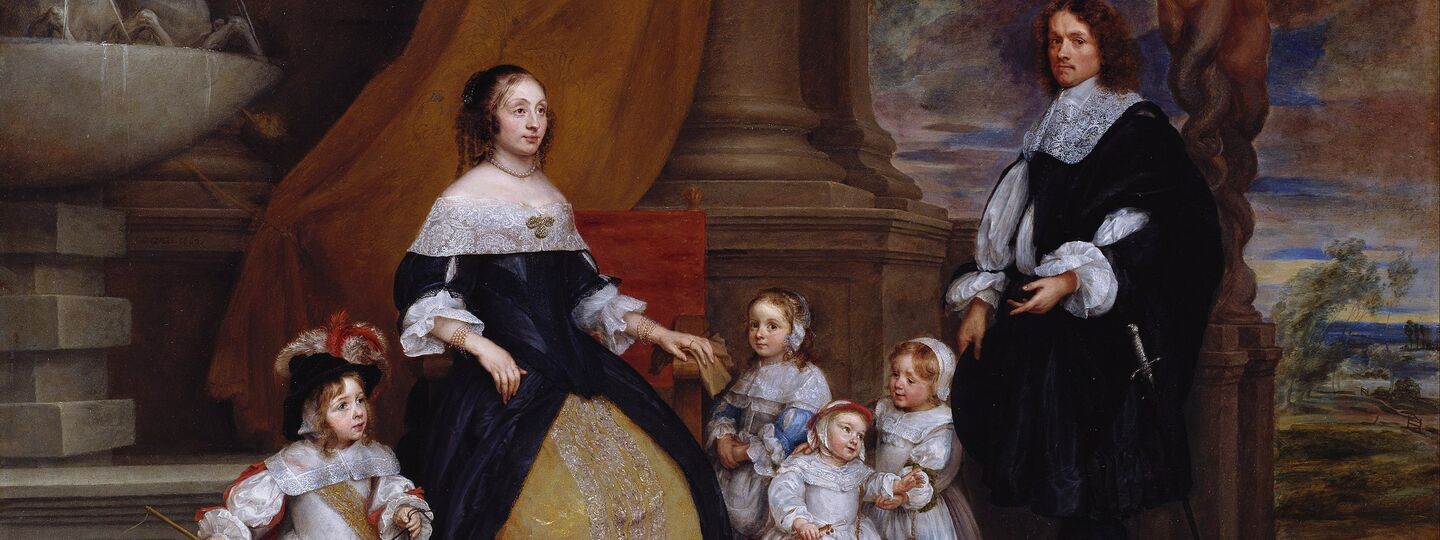
Info
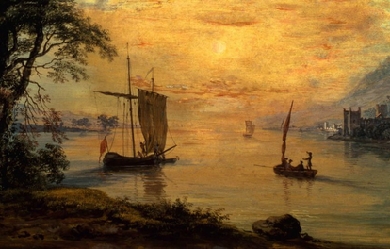
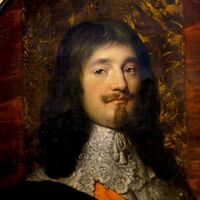
Henry Rice Vaughan (1621 − April 23, 1695) was a Welsh author, physician and metaphysical poet. Vaughan and his twin brother the hermetic philosopher and alchemist Thomas Vaughan, were the sons of Thomas Vaughan and his wife Denise (née Morgan) of 'Trenewydd', Newton, in Brecknockshire, Wales. Their grandfather, William, was the owner of Tretower Court. Vaughan spent most of his life in the village of Llansantffraed, near Brecon, where he is also buried. Vaughan is also known for writing a seminal work on economics and currencies, A Discourse on Coins and Coinage. Early life Both Henry and his twin Thomas were schooled locally by the rector of Llangattock (Crickhowell), the Rev. Matthew Herbert. This occupied six years preceding their attendance at Jesus College, Oxford, England in 1638: s9, p.21 However, around 1640, Vaughan's family influenced him to pursue a career in law to the abandonment of an Oxford degree. As the Civil War developed, he was recalled home from London, initially to serve as a secretary to Sir Marmaduke Lloyd, a chief justice on the Brecknockshire circuit and staunch royalist. Military service interrupted his study of the law and, upon his return, Vaughan began to practise medicine. By 1646, he had married Catherine Wise with whom he reared a son, Thomas, and three daughters, Lucy, Frances, and Catherine. After his first wife's death, he married her sister, Elizabeth. Secular works Vaughan took his literary inspiration from his native environment and chose the descriptive name "Silurist," derived from his homage to the Silures, the Celtic tribe of pre-Roman south Wales which strongly resisted the Romans. This name is a reflection of the deep love Vaughan felt towards the Welsh mountains of his home in what is now part of the Brecon Beacons National Park and the River Usk valley where he spent most of his early life and professional life. By 1647 Henry Vaughan, with his wife and children, had chosen life in the country. This is the setting in which Vaughan wrote Olor Iscanus, the (Swan of Usk). However, this collection was not published until 1651, more than three years after it was written. It is believed that there was great crisis in Vaughan's life between the authorship and publication of Olor Iscanus.[7] During these years, his grandfather William Vaughan died and he was evicted from his living in Llansantffraed. Vaughan later decried the publication, having "long ago condemned these poems to obscurity". Olor Iscanus is filled with odd words and similes that beg for attention despite its dark and morbid cognitive appeal. This work is founded on crises felt in Vaughan's homeland, Brecknockshire. During the Civil War there was never a major battle fought on the ground of Brecknockshire, but the effects of the war were deeply felt by Vaughan and his surrounding community. The Puritan Parliament visited misfortune on the community, ejecting many of their foes, the Anglicans and Royalists. This was an obvious source of misfortune for Vaughan, who also lost his home at that time: There is a distinct difference between the atmosphere Vaughan attempts to convey in this work and in his most famous work, Silex Scintillans. Olor Iscanus is a direct representation of a specific period in Vaughan's life, which emphasizes other secular writers and provides allusions to debt and happy living. A fervent topic of Vaughan throughout these poems is the Civil War and reveals Vaughan's somewhat paradoxical thinking that, in the end, gives no clear conclusion to the question of his participation in the Civil War. Vaughan states his complete satisfaction of being clean on "innocent blood" but also provides what seem to be eyewitness accounts of battles and his own "soldiery". Although Vaughan is thought to have been a royalist, these poems express contempt for all current authority and a lack of zeal for the royalist cause.[4]: s9, p.21 His poems generally reflect a sense of severe decline, which possibly means that Vaughan lamented the effects of the war on the monarchy and society. His short poem "The Timber", ostensibly about a dead tree, concludes "thy strange resentment after death / Means only those who broke - in life - thy peace." Conversion The period shortly preceding the publication of Henry Vaughan's Silex Scintillans marked an important period of his life. Certain indications in the first volume and explicit statements made in the preface to the second volume of Silex Scintillans suggest that Vaughan suffered a prolonged sickness that inflicted much pain. Vaughan interprets this experience to be an encounter with death and a wake-up call to his "misspent youth". Vaughan believes he is spared to make amends and start a new course not only in his life but in the literature he would produce. Vaughan himself describes his previous work as foul and a contribution to "corrupt literature". Perhaps the most notable mark of Vaughan's conversion is how much it is credited to George Herbert. Vaughan claims that he is the least of Herbert's many "pious converts".[4] It is during this period of Vaughan's life, around 1650, that he adopts the saying "moriendo, revixi", meaning "by dying, I gain new life". Poetic Influences It was not until Vaughan's conversion and the writing of Silex Scintillans that he received significant acclaim. He was greatly indebted to George Herbert, who provided a model for Vaughan's newly founded spiritual life and literary career, in which he displayed "spiritual quickening and the gift of gracious feeling"[8]:p2 derived from Herbert. Archbishop Trench has proposed that "As a divine Vaughan may be inferior [to Herbert], but as a poet he is certainly superior". Critics praise Vaughan's use of literary elements. Vaughan's use of monosyllables, long-drawn alliterations and his ability to compel the reader place Vaughan as "more than the equal of George Herbert". Yet others say that the two are not even comparable, because Herbert is in fact the Master. While these critics admit that Henry Vaughan's use of words can be superior to Herbert's, they believe his poetry is, in fact, worse. Herbert's profundity as well as consistency are said to be the key to his superiority. While the superiority or inferiority of Vaughan and Herbert is a question with no distinct answer, one cannot deny that Vaughan would have never written the way he did without Herbert's direction. The explicit spiritual influence of Herbert on Henry Vaughan is undeniable. The preface to Vaughan's Silex Scintillans does all but proclaim this influence. The prose of Vaughan exemplifies this as well. For instance, The Temple, by Herbert, is often seen as the inspiration and model on which Vaughan created his work. Silex Scintillans is most often classed with this collection of Herbert's. Silex Scintillans borrows the same themes, experience, and beliefs as The Temple. Herbert's influence is evident both in the shape and spirituality of Vaughan's poetry. For example, the opening to Vaughan's poem 'Unprofitableness': ´How rich, O Lord! How fresh thy visits are! is reminiscent of Herbert's 'The Flower': How fresh, O Lord, how sweet and clean Are thy returns! ev'n as the flowers in spring. Another work of Vaughan's that clearly parallels George Herbert is Mount of Olives, e.g., the passage, Let sensual natures judge as they please, but for my part, I shall hold it no paradoxe to affirme, there are no pleasures in the world. Some coloured griefes of blushing woes there are, which look as clear as if they were true complexions; but it is very sad and tyred truth, that they are but painted. This echoes Herbert's Rose. In this world of sugar's lies, And to use a larger measure Than my strict yet welcome size. First, there is no pleasure here: Coloure'd griefs indeed there are, Blushing woes that look as clear, As if they could beauty spare. Critics have complained that Vaughan is enslaved to Herbert's works, using similar "little tricks" such as abrupt introductions and whimsical titles as a framework for his own work, and that he "failed to learn" from Herbert. Vaughan carried an inability to know his limits and focused more on the intensity of the poem, meanwhile losing the attention of his audience. However, Alexander Grosart denies that Henry Vaughan was solely an imitator of George Herbert (Grosart, 3). There are moments in Vaughan's writings where the reader can identify Vaughan's true self, rather than an imitation of Herbert. In such passages Vaughan is seen to demonstrate naturalness, immediacy, and ability to relate the concrete through poetry. In some instances, Vaughan derives observations from Herbert's language that are distinctly his own. It is as if Vaughan takes proprietorship of some of Herbert's work, yet makes it completely unique to himself. Henry Vaughan takes another step away from George Herbert in the manner to which he presents his poetry to the reader. George Herbert in The Temple, which is most often the source of comparison between the two writers, lays down explicit instructions on the reading of his work. This contrasts with the attitude of Vaughan, who considered the experience of reading as the best guide to his meanings. He promoted no special method of reading his works . In these times he shows himself different from any other poet. Much of his distinction derives from an apparent lack of sympathy with the world around him. His aloof appeal to his surroundings detaches him and encourages his love of nature and mysticism, which in turn influenced other later poets, Wordsworth among others. Vaughan's mind thinks in terms of a physical and spiritual world and the obscure relation between the two. Vaughan's mind often moved to original, unfamiliar, and remote places, and this reflected in his poetry. He was loyal to the themes of the Anglican Church and religious festivals, but found his true voice in the more mystical themes of eternity, communion with the dead, nature, and childhood.A poet of revelation who uses the Bible,Nature and his own experience to illustrate his vision of eternity. Vaughan's poetry has a particularly modern sound. Alliteration (conspicuous in Welsh poetry)is more extensively used by Vaughan than most of his contemporaries writing English verse, noticeably in the opening to 'The Water-fall'. Vaughan elaborated on personal loss in two well-known poems, "The World" and "They Are All Gone into the World of Light." Another poem, "The Retreat," combines the theme of loss with the corruption of childhood, which is yet another consistent theme of Vaughan's. Vaughan's new-found personal voice and persona are seen as the result of the death of a younger brother. This is an example of an especially beautiful fragment of one of his poems entitled 'The World': I saw Eternity the other night, Like a great ring of pure and endless light, All calm, as it was bright, And round beneath it, Time in hours, days, years Driv'n by the spheres Like a vast shadow mov'd; in which the world And all her train were hurl'd. A Discourse of Coin and Coinage Vaughan wrote an early work on currency, A Discourse of Coin and Coinage (1675). He argued that it was a mass voluntary consensus, the "concurrence of mankind", that gave currency its value as a medium of exchange, not the laws which enforce the usage of currency or the inherent worth of a currency's material composition (such as gold or silver). This work also contained the earliest known research on price level changes and price indices. John Ramsay McCulloch included A Discourse... in his A Select Collection of Scarce and Valuable Tracts on Money[ (1856). Economist Murray N. Rothbard has said that Vaughan was "perhaps the best economic analyst" of his period. [14] Rothbard has praised Vaughan for recognizing that whilst the value of a good is dependent on consumer demand, a good's price results from the interaction of its subjective utility and relative scarcity. Death and legacy As is the case with many great writers and poets, Henry Vaughan was acclaimed less during his lifetime than after his death on April 23, 1695, aged 73. He is buried in the churchyard of St Bridget's, Llansantffraed, Powys. He is recognised "as another example of a poet who can write both graceful and effective prose"[10] and influenced the work of poets such as Wordsworth, Tennyson and Siegfried Sassoon. The American science fiction writer Philip K. Dick even named Vaughan as a key influence. Works Poems with the Tenth Satire of Juvenal Englished * Peace * Olor Iscanus * Silex Scintillans * Silex Scintillans II * Mount of Olives * Flores Solitudinis * Hermetical Physics * The Chemist's Key * Humane Industry * Thalia Rediviva * The World * The Retreat * The Evening-Watch A Discourse of Coin and Coinage: The first Invention, Use, Matter, Forms, Proportions and Differences, ancient & modern: with the Advantages and Disadvantages of the Rise and Fall thereof, in our own or Neighbouring Nations: and the Reasons. Together with a short Account of our Common Law therein. (1675) References Wikipedia - http://en.wikipedia.org/wiki/Henry_Vaughan
The Story of Me The Abridged “Cliff Notes” Version Enter, Stage Right Not much to tell So this will be quick Nothing special happened Though many memorable moments I was born smart More clever than most But sadly, I did not apply My mind to its full potential I’ve fallen in love And then out of love Once, twice, maybe thrice And now, fallen in love once more I led a quiet life Never been famous Never been filthy rich Done nothing exceptional Children I raised Fine, grown up now I’m glad they’re not like me They’ll realize all of their dreams Others, I help Whenever I could I try to pay it forward Hoping to get it on the flipside Some I’ve rubbed The wrong way, and so I hope they will forgive me Before I leave starship Earth The story of me Quite long in years Short on accomplishments A busload of pleasant memories Exit, stage left The End. Vic Evora 08-26-2015
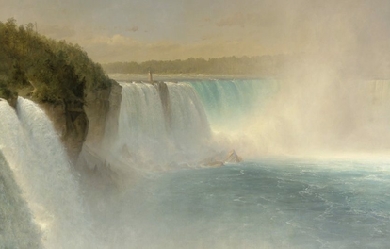
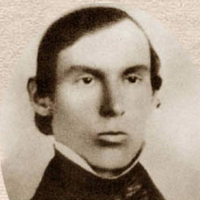
Jones Very (August 28, 1813– May 8, 1880) was an American poet, essayist, clergyman, and mystic associated with the American Transcendentalism movement. He was known as a scholar of William Shakespeare and many of his poems were Shakespearean sonnets. He was well-known and respected amongst the Transcendentalists, though he had a mental breakdown early in his career. Born in Salem, Massachusetts to two unwed first cousins, Jones Very became associated with Harvard University, first as an undergraduate, then as a student in the Harvard Divinity School and as a tutor of Greek. He heavily studied epic poetry and was invited to lecture on the topic in his home town, which drew the attention of Ralph Waldo Emerson. Soon after, Very asserted that he was the Second Coming of Christ, which resulted in his dismissal from Harvard and his eventual institutionalization in an insane asylum. When he was released, Emerson helped him issue a collection called Essays and Poems in 1839. Very lived the majority of his life as a recluse from then on, issuing poetry only sparingly. He died in 1880. Biography Very was born on August 28, 1813, in Salem, Massachusetts and spent much of his childhood at sea. He was the oldest of six children, born out of wedlock to two first cousins. His mother, Lydia Very, was known for being an aggressive freethinker who made her atheistic beliefs known to all. She believed that marriage was only a moral arrangement and not a legal one. His father, also named Jones Very, was a captain during the War of 1812 and was held in Nova Scotia for a time by the British as a prisoner of war. When the younger Jones Very was ten, his father, by then a shipmaster, took him on a sailing voyage to Russia. A year later, his father had Very serve as a cabin boy on a trip to New Orleans, Louisiana. His father died on the return trip, apparently due to a lung disease he contracted while in Nova Scotia. As a boy, Very was studious, well-behaved, and solitary. By 1827, he left school when his mother told him he must take the place of his father and care for the family. After working at an auction house, Very became a paid assistant to the principal of a private school in Salem as a teenager. The principal, Henry Kemble Oliver, exposed his young assistant to philosophers and writers, including James Mackintosh, to influence his religious beliefs and counteract his mother’s atheism. He composed a poem for the dedication of a new Unitarian church in Salem: “O God; On this, our temple, rest thy smile, Till bent with days its tower shall nod”. Harvard years Very enrolled at Harvard College in 1834. During his college years, he was shy, studious, and ambitious of literary fame. He had become interested in the works of Lord Byron, William Wordsworth, Samuel Taylor Coleridge, Johann Wolfgang von Goethe and Friedrich Schiller. His first few poems were published in his hometown newspaper, the Salem Observer, while he completed his studies. He graduated from Harvard in 1836, ranked number two in his class. He was chosen to speak at his commencement; his address was titled “Individuality”. After graduating, Very served as a tutor in Greek before entering Harvard Divinity School, thanks to the financial assistance of an uncle. Though Very never completed his divinity degree, he held temporary pastorates in Maine, Massachusetts, and Rhode Island. Very became known for his ability to draw people into literature, and was asked to speak at a lyceum in his hometown of Salem in 1837. There he was befriended by Elizabeth Peabody, who wrote to Emerson suggesting Very lecture in Concord. In 1838, Ralph Waldo Emerson arranged a talk by Very at the Concord Lyceum. Very lectured on epic poetry on April 4 of that year, after he had walked twenty miles from Salem to Concord to deliver it. Emerson made up for the meager $10 payment by inviting Very to his home for dinner. Emerson signed Very’s personal copy of Nature with the words: "Har[mony] of Man with Nature Must Be Reconciled With God". For a time, Very tried to recruit Nathaniel Hawthorne as a brother figure in his life. Though Hawthorne treated him kindly, he was not impressed by Very. Unlike Hawthorne, Emerson found him “remarkable” and, when Very showed up at his home unannounced along with Cornelius Conway Felton in 1838, Emerson invited several other friends, including Henry David Thoreau, to meet him. Emerson, however, was surprised at Very’s behavior in larger groups. “When he is in the room with other persons, speech stops, as if there were a corpse in the apartment”, he wrote. Even so, in May 1838, the same month Very published his “Epic Poetry” lecture in the Christian Examiner, Emerson brought Very to a meeting of the Transcendental Club, where the topic of discussion was “the question of mysticism”. At the meeting, held at the home of Caleb Stetson in Medford, Massachusetts, Very was actively engaged in the discussion, building his reputation as a mystic within that circle. Mental health Very was known as an eccentric, prone to odd behavior and may have suffered from bipolar disorder. The first signs of a breakdown came shortly after meeting Emerson, as Very was completing an essay on William Shakespeare. As Very later explained, “I felt within me a new will... it was not a feeling of my own but a sensible will that was not my own... These two consciousnesses, as I may call them, continued with me”. In August 1837, while traveling by train, he was suddenly overcome with terror at its speed until he realized he was being “borne along by a divine engine and undertaking his life-journey”. As he told Henry Ware, Jr., professor of pulpit eloquence and pastoral care at Harvard Divinity School, divine inspiration helped him suddenly understand the twenty-fourth chapter of the Gospel of Matthew and that Christ was having his Second Coming within him. When Ware did not believe him, Very said, “I had thought you did the will of the Father, and that I should receive some sympathy from you—But I now find that you are doing your own will, and not the will of your father”. Very also claimed that he was under the influence of the Holy Spirit and composed verse while in this state. Emerson did not believe Very’s claim and, noting the poor writing, he asked, "cannot the spirit parse & spell?" Very said he was also tormented by strong sexual desires which he believed were only held in check by the will of God. To help control himself, he avoided speaking with or even looking at women—he called it his “sacrifice of Beauty”. One of Very’s students, a fellow native of Salem named Samuel Johnson, Jr., said that people ridiculed Very behind his back since he had “gained the fame of being cracked (or crazy, if you are not acquainted with Harvard technicalities)”. During one of his tutoring sessions, Very declared that he was “infallible: that he was a man of heaven, and superior to all the world around him”. He then cried out to his students, “Flee to the mountains, for the end of all things is at hand”. Harvard president Josiah Quincy III relieved Very of his duties, referring to a “nervous collapse” that required him to be left in the care of his younger brother Washington Very, himself a freshman at Harvard. After returning to Salem, he visited Elizabeth Peabody on September 16, 1838, apparently having given up his rule “not to speak or look at women”. As she recalled, He looked much flushed and his eyes very brilliant and unwinking. It struck me at once that there was something unnatural—and dangerous in his air—As soon as we were within the parlor door he laid his hand on my head—and said “I come to baptize you with the Holy Ghost and with Fire”—and then he prayed. After this, Very told her she would soon feel different, explaining, “I am the Second Coming”. He performed similar “baptisms” to other people throughout Salem, including ministers. It was finally Reverend Charles Wentworth Upham who had him committed. Very was institutionalized for a month at a hospital near Boston, the McLean Asylum, as he wrote, “contrary to my will”. While there, he finished an essay on Hamlet, arguing that the play is about “the great reality of a soul unsatisfied in its longings after immortality” and that “Hamlet has been called mad, but as we think, Shakespeare thought more of his madness than he did of the wisdom of the rest of the play”. During his stay at the hospital, Very lectured his fellow patients on Shakespeare and on poetry in general. He was released on October 17, 1838, though he refused to renounce his beliefs. His fellow patients reportedly thanked him as he left. McLean’s superintendent Luther Bell took credit for saving him “from the delusion of being a prophet extraordinaire”, which Luther thought was caused by Very’s digestive system being “entirely out of order”. The same month he was released, Very stayed with Emerson at his home in Concord for a week. While he was visiting, Emerson wrote in his journal on October 29, “J. Very charmed us all by telling us he hated us all.” Amos Bronson Alcott wrote of Very in December 1838: I received a letter on Monday of this week from Jones Very of Salem, formerly Tutor in Greek at Harvard College—which institution he left, a few weeks since, being deemed insane by the Faculty. A few weeks ago he visited me....He is a remarkable man. His influence at Cambridge on the best young men was very fine. His talents are of a high order....Is he insane? If so, there yet linger glimpses of wisdom in his memory. He is insane with God—diswitted in the contemplation of the holiness of Divinity. He distrusts intellect... Living, not thinking, he regards as the worship meet for the soul. This is mysticism in its highest form. Poetry Emerson saw a kindred spirit in Very and defended his sanity. As he wrote to Margaret Fuller, “Such a mind cannot be lost”. Emerson was sympathetic with Very’s plight because he himself had recently been ostracized after his controversial lecture, the “Divinity School Address”. He helped Very publish a small volume, Essays and Poems in 1839. The poems collected in this volume were chiefly Shakespearean sonnets. Very also published several poems in the Western Messenger between 1838 and 1840 as well as in The Dial, the journal of the Transcendentalists. He was disappointed, however, that Emerson, serving as editor of the journal, altered his poems. Very wrote to Emerson in July 1842, “Perhaps they were all improvements but I preferred my own lines. I do not know but I ought to submit to such changes as done by the rightful authority of an Editor but I felt a little sad at the aspect of the piece.” He was never widely read, and was largely forgotten by the end of the nineteenth century, but in the 1830s and 1840s the Transcendentalists, including Emerson, as well as William Cullen Bryant, praised his work. Very continued writing throughout his life, though sparingly. Many of his later poems were never collected but only distributed in manuscript form among the Transcendentalists. In January 1843, his work was included in the first issue of The Pioneer, a journal edited by James Russell Lowell which also included the first publication of Edgar Allan Poe’s “The Tell-Tale Heart”. Final years and death Jones Very believed his role as a prophet would last only twelve months. By September 1839, his role was complete. Emerson suggested that Very’s temporary mental instability was worth the message he had delivered. In his essay “Friendship”, Emerson referred to Very: I knew a man who under a certain religious frenzy cast off this drapery, and spoke to the conscience of every person he encountered, and that with great insight and beauty. At first, all men agreed he was mad. But persisting, he attained to the advantage of bringing every man of his acquaintance into true relations with him... To stand in true relations with men in a false age is worth a fit of insanity, is it not? The last decades of Very’s life were spent in Salem as a recluse under the care of his sister. It was during these years that he held roles as a visiting minister in Eastport, Maine and North Beverly, Massachusetts, though these roles were temporary because he had become too shy. By age 45, he had retired. In his last forty years, Very did very little. As biographer Edwin Gittleman wrote, "Although he lived until 1880, Very’s effective life was over by the end of 1840." He died on May 8, 1880 and, upon hearing of Very’s death, Alcott wrote a brief remembrance on May 16, 1880: The newspapers record the death of Jones Very of Salem, Mass. It was my fortune to have known the man while he was tutor in Harvard College and writing his Sonnets and Essays on Shakespeare, which were edited by Emerson, and published in 1839. Very was then the dreamy mystic of our circle of Transcendentalists, and a subject of speculation by us. He professed to be taught by the Spirit and to write under its inspiration. When his papers were submitted to Emerson for criticism the spelling was found faulty and on Emerson’s pointing out the defect, he was told that this was by dictation of the Spirit also. Whether Emerson’s witty reply, “that the Spirit should be a better speller,” qualified the mystic’s vision does not appear otherwise than that the printed volume shows no traces of illiteracy in the text. Very often came to see me. His shadowy aspect at times gave him a ghostly air. While walking by his side, I remember, he seemed spectral,—and somehow using my feet instead of his own, keeping as near me as he could, and jostling me frequently. His voice had a certain hollowness, as if echoing mine. His whole bearing made an impression as if himself were detached from his thought and his body were another’s. He ventured, withal, to warn me of falling into idolatries, while he brought a sonnet or two (since printed) for my benefit. His temperament was delicate and nervous, disposed to visionariness and a dreamy idealism, stimulated by over-studies and the school of thought then in the ascendant. His sonnets and Shakespearean essays surpass any that have since appeared in subtlety and simplicity of execution. Critical assessment The first critical review of Very’s book was written by Margaret Fuller and published in Orestes Brownson’s Boston Quarterly Review; it said Very’s poems had “an elasticity of spirit, a genuine flow of thought, and unsought nobleness and purity”, though she admitted she preferred the prose in the collection over the poetry. She mocked the “sing song” style of the poems and questioned his religious mission. She concluded: “I am... greatly interested in Mr Very. He seems worthy to be well known.” James Freeman Clarke admired Very’s poetry enough to have several published in his journal, the Western Messenger, between 1838 and 1840. William Ellery Channing admired Very’s poetry as well, writing that his insanity “is only superficial”. Richard Henry Dana, Sr. also commented positively on Very’s poetry: “The thought is deeply spiritual; and while there is a certain character of peculiarity which we so often find in like things from our old writers, there is a freedom from quaintness... Indeed, I know not where you would... find any thing in this country to compare with these Sonnets.” Editor and critic Rufus Wilmot Griswold was impressed enough by Very’s poetry to include him in the first edition of his anthology The Poets and Poetry of America in 1842. He wrote to Emerson asking for more information about him and expressing his opinion of his poetry: “Though comparatively unknown, he seems to be a true poet.” The modern reassessment of Jones Very as an author of literary importance can be dated to a 1936 essay by Yvor Winters who wrote of the poet, “In the past two decades two major American writers have been rediscovered and established securely in their rightful places in literary history. I refer to Emily Dickinson and Herman Melville. I am proposing the establishment of a third.” Winters, in speaking of Very’s relations with Emerson and his circle, concluded, “The attitude of the Transcendentalists toward Very is instructive and amusing, and it proves beyond cavil how remote he was from them. In respect to the doctrine of the submission of the will, he agreed with them in principle; but whereas they recommended the surrender, he practised it, and they regarded him with amazement.” Subsequently, William Irving Bartlett, in 1942, outlined the basic biographical facts of Very’s life in Jones Very, Emerson’s “Brave Saint.” A complete scholarly edition of Very’s poetic works belatedly appeared, over a century after the poet’s death, in 1993. References Wikipedia—https://en.wikipedia.org/wiki/Jones_Very

Look, I am not a professional writer. But I do have a passion. And if you look you will find. If you wish to see, read my poems A Poem About A Soldier, My Bed Of Clouds, A Piece of My Soul, The Beauty of the Storm, and This Bottle of Mine. They're some of the best I've written. And if you enjoy them, don't be afraid to follow me. I don't bite. And I will probably follow you back. However, don't take everything in my poems as reality. Sometimes I just write what is on my mind. I love you all! :) "A simple writer in a simple world. But wait, the world is not so simple is it? There is no right or wrong. Just a jumble of events that people judge. Everything that is wrong is right, and everything that is right is wrong. How are we to know the difference? As human beings we are inclined to make mistakes. It is simply in our nature. But are those mistakes really mistakes? Like the color blue, ever since we were young we were told what things were. But how do we know that once upon a time the color we now call blue wasn't orange or yellow? We don't know. So tell me, is right wrong or is wrong right?"
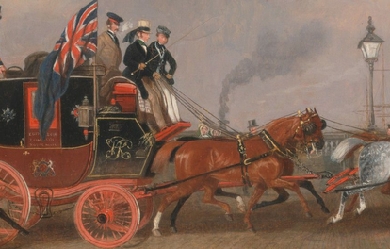
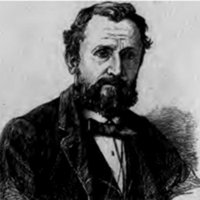
James Thomson (23 November 1834– 3 June 1882), who wrote under the pseudonym Bysshe Vanolis, was a Scottish Victorian-era poet famous primarily for the long poem The City of Dreadful Night (1874), an expression of bleak pessimism in a dehumanized, uncaring urban environment. Life Thomson was born in Port Glasgow, Scotland, and, after his father suffered a stroke, he was sent to London where he was raised in an orphanage, the Royal Caledonian Asylum on Chalk (later Caledonian after the asylum) Road near Holloway. He spoke with a London accent. He received his education at the Caledonian Asylum and the Royal Military Academy and served in Ireland, where in 1851, at the age of 17, he made the acquaintance of the 18-year-old Charles Bradlaugh, who was already notorious as a freethinker, having published his first atheist pamphlet a year earlier. More than a decade later, Thomson left the military and moved to London, where he worked as a clerk. He remained in contact with Bradlaugh, who was by now issuing his own weekly National Reformer, a “publication for the working man”. For the remaining 19 years of his life, starting in 1863, Thomson submitted stories, essays and poems to various publications, including the National Reformer, which published the sombre poem which remains his most famous work. The City of Dreadful Night came about from the struggle with insomnia, alcoholism and chronic depression which plagued Thomson’s final decade. Increasingly isolated from friends and society in general, he even became hostile towards Bradlaugh. In 1880, nineteen months before his death, the publication of his volume of poetry, The City of Dreadful Night and Other Poems elicited encouraging and complimentary reviews from a number of critics, but came too late to prevent Thomson’s downward slide. Thomson’s remaining poems rarely appear in modern anthologies, although the autobiographical Insomnia and Mater Tenebrarum are well-regarded and contain some striking passages. He admired and translated the works of the pessimistic Italian poet Giacomo Leopardi (1798–1837), but his own lack of hope was darker than that of Leopardi. He is considered by some students of the Victorian age as the bleakest of that era’s poets. He died in London at the age of 47. In 1889, seven years after Thomson’s death, Henry Stephens Salt wrote his first major biography, The Life of James Thomson (B.V.). Thomson’s pseudonym, Bysshe Vanolis, derives from the names of the poets Percy Bysshe Shelley and Novalis. He is often distinguished from the earlier Scottish poet James Thomson by the letters B.V. after the name. References Wikipedia—https://en.wikipedia.org/wiki/James_Thomson_(poet,_born_1834)

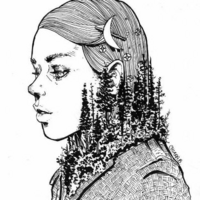
Everything in life is a matter of perspective. What we think and feel are all temporary and fading shreds that fluctuate based on our perception. Poetry is the art of eloquently and passionately jotting down our attempts at understanding what we perceive and how it evolves. I can't say that everything I offer here is pleasant truthfully most of it is probably not. I write to release it helps me cope with what is going on around me. These are the peaks of my ever changing thoughts, feelings and experiences. I hope you are able to find something useful in them.

Basically I grew up sheltered, had a rocky marriage, have 3 beautiful daughters that I'm very proud of. I am currently seeing someone and I hope it lasts. My work on this site is just when my emotions and/or thoughts get too big for my head and heart. I've never been one to conform to rhyming or even a set standard for poetry. I long for Freedom in every aspect of my life.
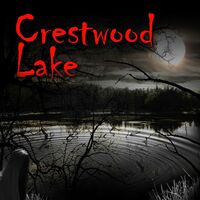
Mark R. Vogel is a clinical psychologist and has worked in mental health since 1987. He completed his BA and MA at Montclair State University in New Jersey, and his doctorate degree at Yeshiva University in New York City. In 2003 he graduated from the Institute of Culinary Education in New York City. For ten years he taught cooking classes and edited cookbooks. He now gives seminars on wine. Since 2002 he has published 400 articles on food and wine in his column Food For Thought http://www.foodforthoughtonline.net A Ripperologist, he regularly lectures on the infamous Jack the Ripper case. https://www.tapinto.net/towns/west-essex/articles/jack-the-ripper-murders-come-to-life-at-west-cald In April 2003 Mark published his first novel CRESTWOOD LAKE. Crestwood Lake is a small, secluded town in the woods of northern Vermont. Mysterious events and strange deaths have always plagued the community—as have rumors of witchcraft. But lately, there has been a rash of suicides and violent murders. Captain Butch Morgan, the chief of police, must uncover the truth about Crestwood Lake. With each gruesome discovery, he is thrust increasingly deeper into the macabre. Morgan must confront an ancient evil, a fateful showdown that could destroy his life, the woman he loves, and the tortured town of Crestwood Lake. Available at Amazon.com and https://www.createspace.com/5371409
Am a Ugandan born, based in the capital Kampala. I am a professional community developer and an inclusive development expert. I love reading, watching and spending time with friends. I have deep love and passion for writing poetry, short stories and religious and political articles. its all about my heart on a paper.

Hi my name is Alice. I basically live in books. Hogwarts, camp half blood, shire, etc, is basically my life. Besides most of the reading, the sleeping and stuffing my face I actually write. Not just poems that are random, but stories. love stories, adventure stories, scary stories, you name it.
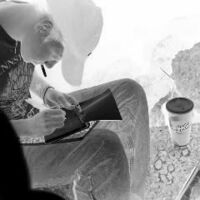
Let me slow down collect my thoughts Racing a non existent clock But I pretend its not I believe my thoughts have purpose To whom I’m not sure but purpose nonetheless So I think & think & think & think I never sleep Never rest I day dream @ best Slide through the motions The daily stress Yes, no? That’s me Vague @ best.

I am now a 15 year old pot head I have a 16 year old amazing boyfriend He makes my life perfect I love art I express myself through my art and poetry Nobody but me knows I write poems I don't even know if I'm good at it but I like it I tell my thoughts then I can't tell people I was in gymnastics for 8 years I cook But I have no idea wat I wanna be wen I grow up I also love animals

Hello Beautiful » Welcome to my humble page. ( : If your reading this you probably want to know a little about me. Well, I am very creative and I like all types of art. As you may see, I love to draw, write, take photos, and write poetry. Every time I see something new that is in the creative field, I try it! I am a bubbly blonde who loves life! I have two best friends and their names are Laura and Catalina. In other terms, Mama Bear and Kitty. I love Lolita and Kawaii/ Dessu Dessu stuff. I currently live in California, but I want to live in Japan some day. I also love K-pop and sweets! >w< Oh I plan on being a Computer Animator as well as a Flight attendant. «










